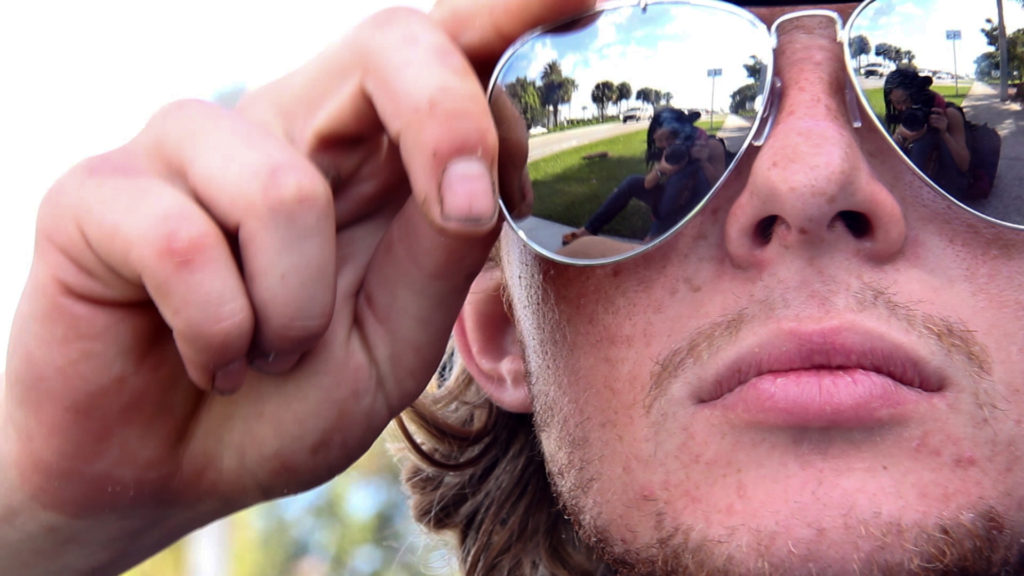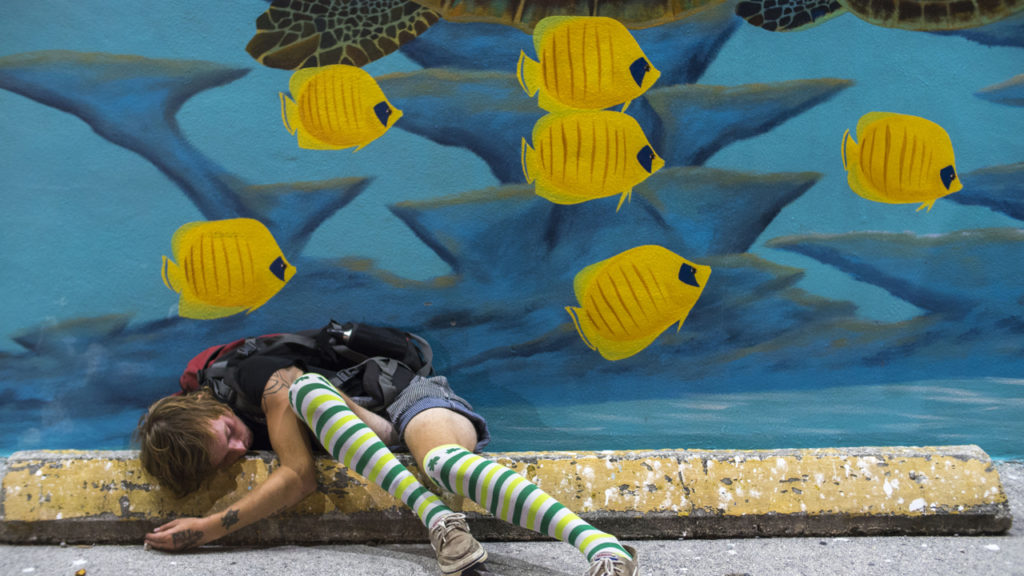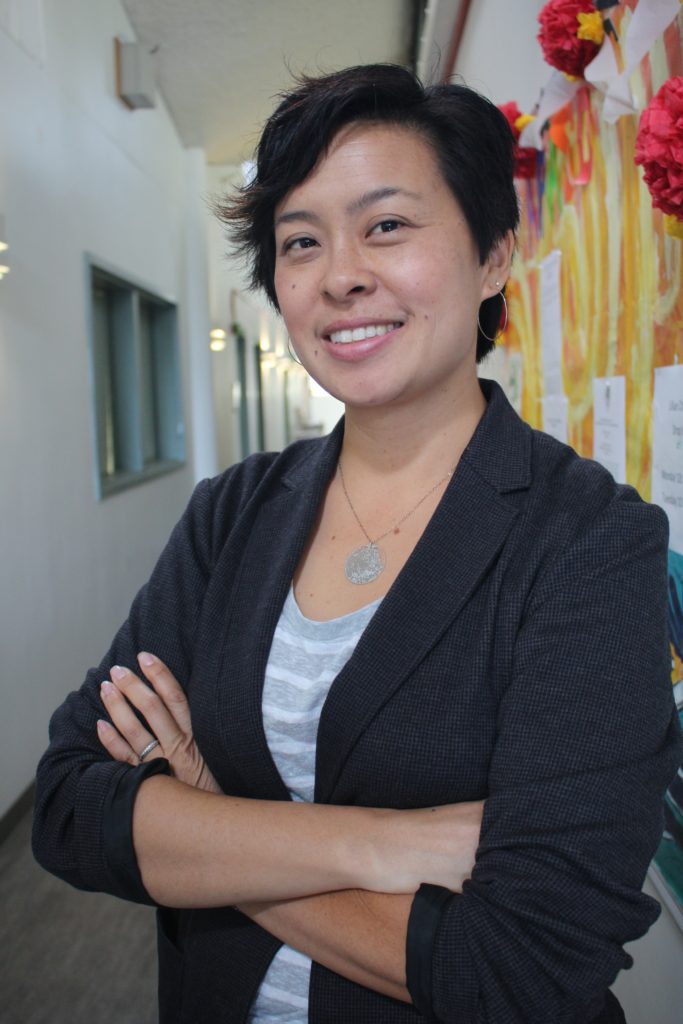
By Guest Contributor: Dawn Lee Tu (@dawnleetu)
I Am Another You is filmmaker Nanfu Wang’s follow up to the gripping Hooligan Sparrow, named after the rebel activist Le Haiyan who leads a group of protesters seeking justice for six elementary school girls sexually assaulted by their school principal. In that film, Wang embarked on a harrowing journey to film Le, and both were eventually were targeted by Chinese officials for Le’s feminist activism. The film concludes with Wang recording how she was forced to smuggle her raw footage out of China in order to produce Hooligan Sparrow.
This time, however, Wang doesn’t become an enemy of the state while filming I Am Another You. Instead, she finds herself living on the streets with a free spirit named Dylan who has chosen a life as a drifter. I Am Another You makes us rethink social issues such as homelessness and mental illness, as well as what personal freedom feels and looks like. Wang’s storytelling compels us to think about our lives, through Dylan’s as he lives on the street.
Winner of the SXSW LUNA Chicken & Egg Award for Best Documentary Feature directed by a woman and the SXSW Special Jury Award for Excellence in Documentary Storytelling for I Am Another You, Wang was recently named one of Variety’s 2017’s Ten Documakers to Watch. I Am Another You is currently streaming on Independent Lens on PBS until February 15th. Watch it here.
Wang took time out of her busy schedule to talk with me about her passion for documentary filmmaking and I Am Another You.
I’m struck by your body of work. There seems to be a particular style to your storytelling. You’re immersed in your storytelling when you’re making your documentaries, you’re very much present in that space and there are some documentary storytellers who choose to be purely behind the camera. Given that you’re very much a part of the story, how do you see yourself as a storyteller?
To the point that I am often in my films, in the past two films, they were not intentional when I started to make the films. It was all accidental. I say that because those films, I started without knowing that I was going to make a feature film. I did not know which direction the story would go. I really enjoy one aspect of filmmaking, which is to discover the story as I am making it. So both Hooligan Sparrow and I Am Another You were a process of discovery. (In I Am Another You,) initially I thought it was one story; then halfway through making it, it turned out to be a different one. Then when I was editing it, it turned out to be different again. It was constantly evolving. I think it is curiosity that drove me to follow whatever that is happening and eventually turn it into a story.
From your curiosity, are you drawn to certain possibilities? What kind of stories are you drawn to telling?
I am very interested in the human mind. I like the intricacies of our emotions, our thoughts, and I am just curious about how we think, how we feel, why we think, and why we feel and think in a certain way. Besides that I am always interested in people whose stories aren’t really in the majority’s narrative, stories that aren’t told, people who usually don’t have their voices heard. I think that’s the subject that I find myself interested in: a combination of human mind and social issues.
What influenced your decision to get into documentary filmmaking?
I really got into documentary filmmaking very late. I came to the U.S. in 2011 and prior to that I hadn’t seen any documentaries in China. I really started watching documentaries here in the U.S., starting at Ohio University, and that was in 2011.
Some of the first documentaries I saw, I was very struck by the narratives and how compelling the documentary could be, sometimes just as or even more compelling than fictional film. When I discovered documentary filmmaking when I was studying in the U.S., when I discovered that that was something I wanted to do… I came to the U.S. wanting to become a generalist but after a year and a half of study, I realized that I didn’t want to work in tv or network. Documentary filmmaking matches every aspect of my interest. I think even though I hadn’t seen documentaries before, growing up in rural China, I was always very socially conscious. The world that I came from didn’t have many educational resources so from very early on, I wanted to tell a story about the lack of resources in education. My father passed away when I was 12 because he didn’t have good healthcare and I also thought when I was little that when I grow up, I wanted to change the healthcare system by exposing the problems with it. I think it’s all this background and experiences in my early childhood that prepared me to become a documentary filmmaker.

How did you come to decide that what is now I Am Another You was a story you wanted to tell? What was the process of discovery for you?
So as I was traveling and I met Dylan, I didn’t think about making a film. I was simply very intrigued by his lifestyle so I decided to stay on the streets and film him for about a month. I was obsessed with filming and I wanted to film everything. My experience with street life was a part of my documentation. And as I came back from the journey, I think it was 2 years later I discovered his family and I met his father. I was amazed at how different and similar he and his father are so I decided to follow his father to continue filming. Then I thought this could be a very interesting story because I saw not only the choice of being homeless but also where Dylan came from, his cultural background, and the social background. It was then that I felt that it could be a feature film. I was intrigued by his story, about growing up in a Mormon family, and the transformation of his life.
What was that like for you filming and being on the road?
It was very liberating. A lot of people warned me about the street life because it could be very dangerous and no one could guarantee my safety. I trusted Dylan and made the decision to follow him. As soon as I started living the street life, it was not what most people would think. I think it’s because it was in Florida in December, which is not like New York in December. It was not that hard because the weather was good. I was just struck by how generous people could be. So many people invited us into their homes, take us to dinner, or one person gave me a blanket, which I still keep, because it always reminds me of the generosity of people.
Were there any moments in this experience that helped you rethink some of your assumptions about living on the street, homelessness, or even mental health issues?
When I first came back to New York after the first trip, I felt liberated. In my life, I often would worry about the future such as would I get a job or be able to make a living or have a comfortable life? After the journey and the experiences living on the street, I didn’t feel horrible and actually enjoyed the spontaneity and unpredictability of street life. I came back and felt there isn’t much in my life that is worth worrying about. I’ve lived without money. I’ve eaten out of garbage cans. I’ve slept in weird places. If I can do that and feel good, what else should I be afraid about? That was very liberating to me.
What do you want people to pay attention to and think about as they are watching the documentary?
When I first described Dylan to people, most people say, oh yeah I know people like him; I’ve seen people like him; I have a neighbor like him, relatives or friends or classmates who are like Dylan. We all feel that way because every day we pass from home to work and we see many people like Dylan on the sidewalk. We have preconceived notions and judgements towards them so I really hope that the film can provide people a different version of those types of stereotypical stories. Hopefully people will have the willingness and passion to learn about people like Dylan. We are all individuals and we shouldn’t be labelled “mentally ill” and “homeless” because once we put the labels on (people), we refuse to understand them.
As an Asian woman traveling in the South, in Florida, with Dylan, who for the most part looks like a white man, did race ever become a factor in your experiences during that time?
Well it definitely has but at the time I was very, very concentrated on filming and on Dylan and on the interactions so I forgot myself, my own self disappeared in a way. There were incidents that Dylan later reminded me about which made me realize that I’m sure race had an effect on street life. There was one time a guy came to ask Dylan to dye his hair for $5. Dylan dyed his hair and after they were done, the guy asked Dylan, “Who is that Asian girl you’re with? Would she offer sex for money?” Dylan later told me and I thought it was funny. With people’s judgements and conceptions, they certainly see me differently, and they wonder and I’m sure people are curious, why is this Asian girl following this guy, filming with a camera?
Did you think about the timing of your documentary in the context of our current national political climate where discussion is extremely polarized? You talk about needing to address judgements and misconceptions in life. Did you think about how people would be viewing the documentary given our current political climate?
Not really because I felt this story about Dylan and homelessness and mental illness have always been issues that people need to understand and have more compassion (about). It’s true right now (about) our environment but I felt like this is more reason for me to finish and release it and hopefully it will generate discussion around the topics and the film.
What do you hope to accomplish with your documentary filmmaking?
That’s a big question. I think for myself, (it’s) for me to understand the world. I make films so I can understand how the world works, how people think, how we function, and to make sense of the world. I hope that through the films that I make, other people can have an opportunity to see the world that they don’t usually don’t pay attention to as well and to have more understanding about other people’s lives and their own lives hopefully.
To follow Nanfu Wang, visit her Facebook page or follow her on Twitter. You can also find I am Another You on Facebook or visit the website. For the full length film, visit Independent Lens on PBS.
Hooligan Sparrow is currently available for streaming through Netflix.

Dawn Lee Tu grew up in San Francisco and works in higher education in the Bay Area. She writes about entertainment, identity, and education issues. Follow her on Twitter at @dawnleetu or find her on LinkedIn.
Learn more about Reappropriate’s guest contributor program and submit your own writing here.
